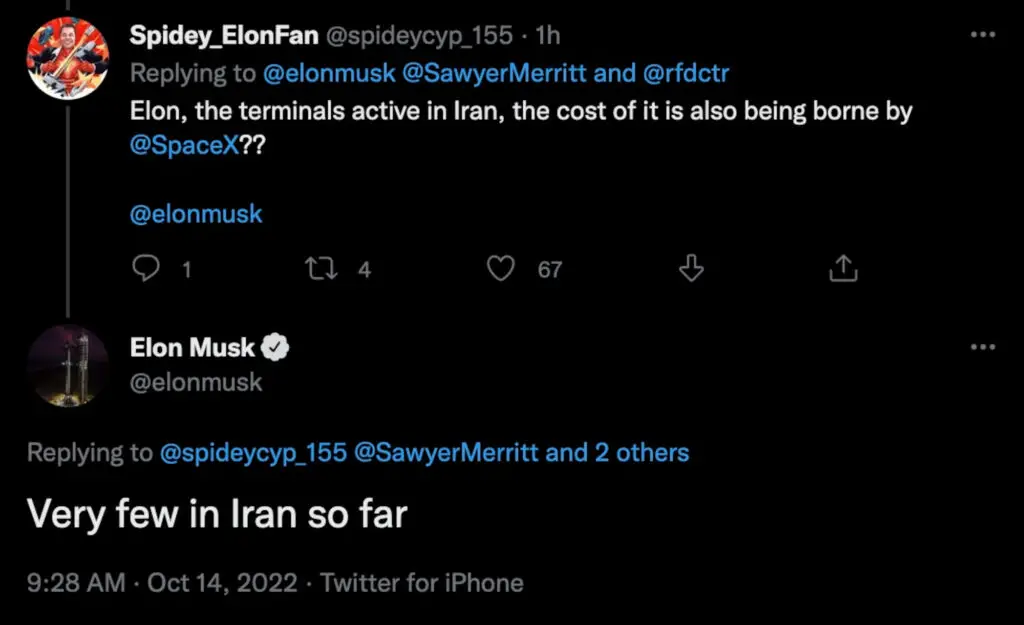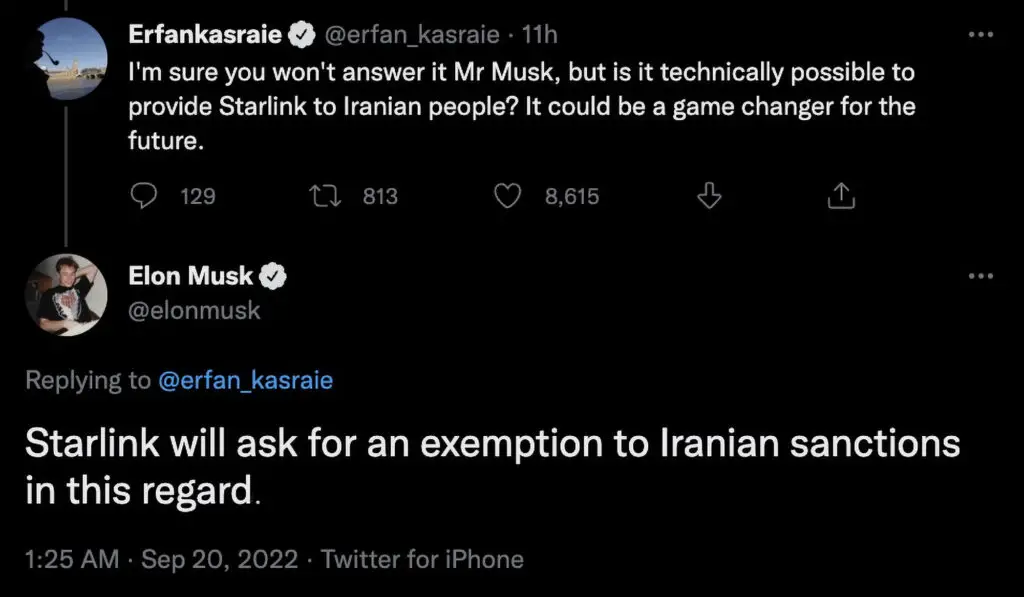Tech tycoon Elon Musk appears to have admitted that several of his Starlink satellite Internet terminals have been activated in Iran.
The revelation comes after the billionaire CEO of SpaceX and founder of Tesla reportedly said that the system had been activated for Iran but would require people getting terminals into the country to use it.
Starlink can only be accessed by specially dedicated terminals.

Musk was replying to a tweet at 8:28 this morning Friday, 14th October when he said that there were “very few in Iran so far”, indicating that there were some already in the country.
He had been asked by ‘spideycyp_155’: “Elon, the terminals active in Iran, the cost of it is also being borne by SpaceX??”
Musk had previously announced that he would activate Starlink for Iran in the wake of the brutal death of Mahsa Amini after she was arrested by Iran’s ruthless morality police.
It has been seen as an alternative to traditional means of accessing the internet, which are largely under the control of the Iranian government.

But for people to be able to use Starlink after Tehran shut off most of the country’s internet, special terminals are required.
Karim Sadjadpour, a senior fellow at the Carnegie Endowment for International Peace, which is an international affairs think tank headquartered in Washington D.C., had tweeted on Sunday, 25th September, that he had spoken with Musk.
Sadjadpour said: “I spoke w/ @elonmusk about Starlink in Iran, he gave me permission to share this: ‘Starlink is now activated in Iran. It requires the use of terminals in-country, which I suspect the [Iranian] government will not support, but if anyone can get terminals into Iran, they will work’.”
In response to the support of American officials to activate satellite internet in Iran, the spokesman of the Ministry of Foreign Affairs of the Islamic Republic called it a “violation of Iran’s sovereignty” and threatened that these “efforts will not go unanswered”.

Musk made headlines after he said that he wanted to be exempt from Iranian sanctions so he could provide the country with his Starlink satellite internet system.
A netizen going by ‘erfan_kasrale’ had tagged Musk in a tweet on 19th September, saying: “I’m sure you won’t answer it Mr Musk, but is it technically possible to provide Starlink to Iranian people? It could be a game changer for the future.”
And Musk tweeted a reply on 20th September, saying: “Starlink will ask for an exemption to Iranian sanctions in this regard.”
The tweet generated widespread interest as it could get around efforts by the Iranian authorities to shut down the internet and social media in the country to silence protests.

The US Treasury then said that it is possible to export some satellite internet equipment to Iran.
Mahsa Amini, 22, from Saqqez, Kurdistan Province, was on a visit to Tehran when she was arrested by morality police accused of violating hijab rules on 13th September.
She was allegedly beaten while in custody and spent the following days in a coma in the hospital before succumbing in the ICU on 16th September.

The clinic where she was treated said in a now-deleted social media post that she had been admitted brain-dead.
Alleged medical scans of her skull leaked by hackers showed that she had suffered bone fractures, haemorrhages, and brain oedema.
Anti-regime media are claiming that Mahsa’s medical records showing her history of heart disease were faked by the Iranian government.
The protests her death sparked are ongoing and, according to the non-profit Iran Human Rights, at least 201 people, including 28 children, have been killed so far, according to its latest figures released on 12th October.



